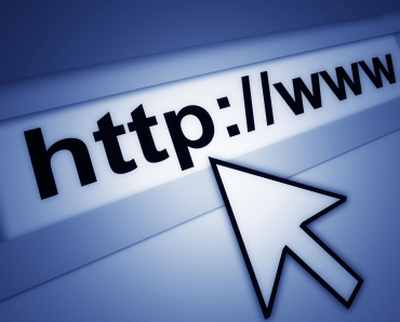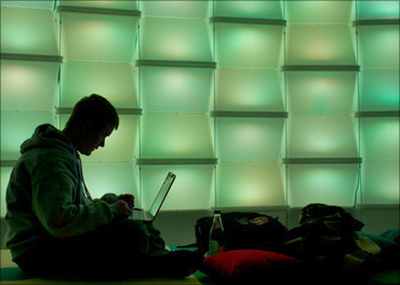
The Stop Online Piracy Act, or Sopa, has just been put on the back burner by the US government following an online howl. Sopa does need a rethink.
However, the debate across the media, largely, was about the government's right to police the Net, not about what the Bill sought to do -- control piracy. Closer home in India, Kapil Sibal talked about "objectionable material" online. He was lambasted by magazines, newspapers, TV channels and, of course, online.
The message: don't mess with the internet. It is a beacon of democracy, fair play and free speech. It is a forum that offers hope to all the oppressed people in the world. No one can have any jurisdiction over it.
...

The outpouring of venom, the thousands and millions of digital signatures every time anyone questions anything said on the Net tell you how popular it is.
This is not just because it reaches over two billion people globally. But because it has a depth, an interactivity and a ubiquity that no other media offers.
Which is why it is important that we ignore Sopa or Sibal. They are merely messengers. What we need to focus on is the debates they throw up -- piracy and "objectionable content".
...

Piracy is at best thievery and at worst a source of funding for terrorists. It is a perfectly valid concern for any company trying to run a legitimate business, if its products are being bought, sold or exchanged illegally on the internet. Yet it doesn't seem to rouse either consumers or activists.
If an anchor or a news reporter uses "objectionable content" -- meaning spouts rubbish on television news channels -- the outpouring against news media is a sight to behold. Yet if someone does the same thing online, it doesn't elicit the same reaction.
According to media lawyer Anish Dayal, the laws of libel apply to anything "defamatory" that has been communicated on a public platform to more than one person.
So any publication or utterance on the internet is subject to the same censure as it would be on TV channels or newspapers.
...

In reality, however, there is an unwritten code for the internet, giving it more liberty than other media. The freedom to steal or spew online is greater, it seems, than our need to maintain civility on public forums such as Facebook, Google or Twitter, among thousands of other sites.
You could argue that if rude behaviour, false information and pornography (one of the biggest industries online) are acceptable on the internet, mainstream newspapers and magazines too should be free to publish paid news or write anything they want. So should film, television or radio.
When the government decided to ban smoking scenes in Indian films in 2005, the industry fell in line. In 2009 a film called Billu Barber cut its name to Billu, because barbers objected to it.
There are dozens of perfectly all right films that have had their releases held up, names changed, or scenes deleted because it might cause trouble. TV channels are routinely told to hold back during times of communal crisis.
...

In almost all these cases the films, newspapers or TV stations have co-operated with authorities. Many of us may not agree with what was demanded. But the fact is that we are a heterogeneous democracy. There are simply too many people in India dying to take offence at the slightest provocation.
With so much disagreement and seeming intolerance, India remains one of the most liberal media markets in the world.
If newspapers, film, television or radio follow the rules and still manage to overthrow governments, expose scams or bring murderers to book, why is the internet exempt?
...

This exemption makes it a natural haven for people who have nowhere else to spew their vitriol. Note that the guys who post the worst, most malicious comments never give their names, religious identities or locations.
If they did the same thing to someone in their homes or in a public place, they would probably be beaten up. But activism and venom come easy sitting in an ergonomic chair far from its physical and moral repercussions.
Therefore, it is time to move the internet out of the privacy of cubicles, offices and homes and bring it into public squares. It is time to acknowledge that this medium is as powerful as television or film.
...

And to begin an honest debate on how best we can keep all that is good and minimise all that is bad about the internet.
This is not happening because every time someone questions the medium, he or she becomes the evil. The messenger becomes the vilified; the debate shifts away.
Without debate or a regulatory framework that works, how on earth can this medium ever be strengthened?